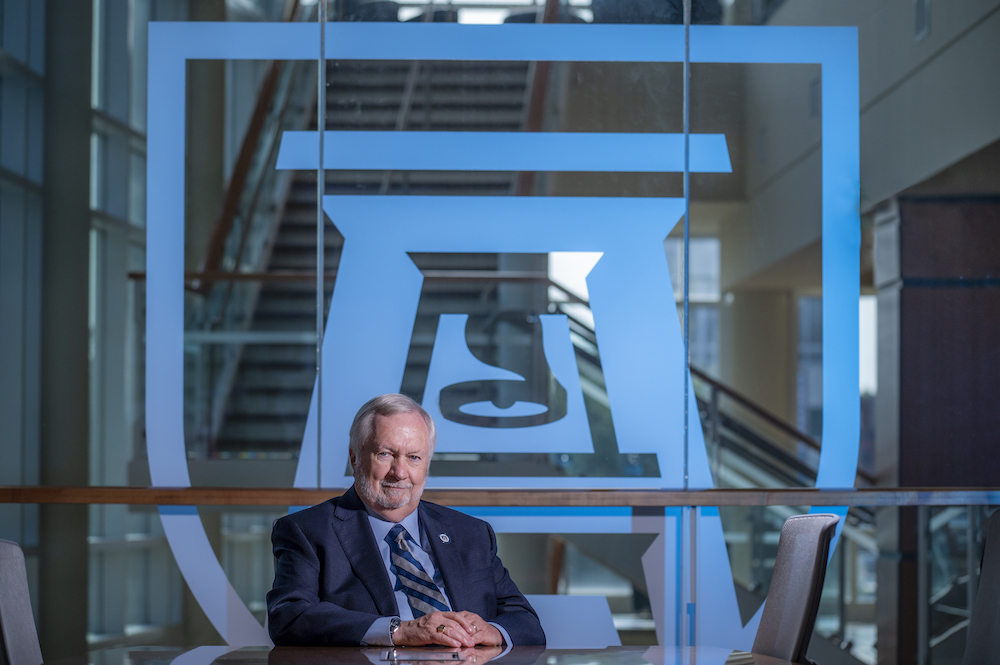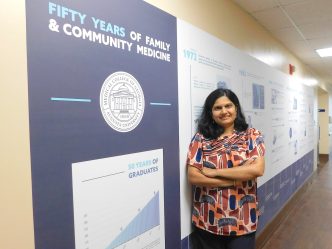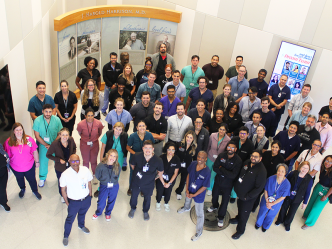Augusta University President Brooks A. Keel, PhD, will speak before the U.S. House Energy and Commerce Subcommittee on Health on Tuesday, Oct. 26 in Washington, D.C., at a hearing called “Caring for America: Legislation to support patients, caregivers and providers.”
This hybrid legislative hearing begins at 10:30 a.m. Oct. 26 and includes both in-person and remote attendance. Watch the livestream of the hearing.
Keel, who will testify in person, will be presenting on the Medical College of Georgia’s 3+ program as a solution to address the growing concerns over physician shortages, student debt crisis, disparities in health care and providing better access to care in rural and underserved areas.
MCG 3+ is an accelerated medical school curriculum that has been developed to recruit, train and place more primary care physicians in underserved communities around Georgia.
In Keel’s prepared statement submitted to the subcommittee, he points out that “the entire country is facing a physician shortage, and while primary care physicians are in short supply everywhere, the lack of providers in rural settings is especially acute. Georgia has a severe shortage of physicians, ranking 41st in the country in physicians per capita. Currently, nine counties in Georgia have no practicing physician at all.”
According to the Georgia Board of Health Care Workforce, 60 of the state’s 159 counties have no pediatrician, 76 are without an obstetrician or gynecologist, 18 have no family medicine physician, 32 have no internist and 74 do not have a general surgeon.
This trend may only get worse as the state’s population continues to age and more doctors, specifically family practitioners, transition into retirement, Keel said.
The MCG 3+ Primary Care Pathway waives medical school tuition for students who commit to one of seven primary care pathways in rural and underserved Georgia. The primary care pathways include family medicine, emergency medicine, internal medicine, pediatrics, psychiatry, obstetrics and gynecology or general surgery.
The students must agree to set up a practice post-residency in a rural or underserved part of Georgia for each year they would like tuition waived. If they set up a practice for three years post-residency, these students will not incur any tuition debt from medical school. The unique part of this program is the tuition waiver is agreed to when the students start medical school, so they never incur the debt.
“This program aims to reduce disparities by increasing access to care in rural and underserved areas across the state of Georgia, and begins to tackle the extreme physician shortage that we are experiencing in one of the top ten most populous states in the country,” Keel said. “MCG 3+ will substantially reduce the cost of medical school, shorten the time required for physician training and incentivize physicians to practice medicine in rural and underserved parts of Georgia by offering the opportunity to have medical school tuition eliminated.”
“Our goal is to create a continuing pipeline of physicians who are dedicated to meeting the health care needs of the state, both now and well into the future,” Keel added. “We believe that, through leveraging the combined efficiencies of the accelerated three-year MD curriculum, coupled with a tuition-free medical education and an in-state primary care residency experience, MCG will dramatically enhance our contribution to Georgia’s physician workforce and significantly impact the health and economic prosperity of all Georgians, especially those living in our rural and underserved areas.”
 Augusta University
Augusta University




